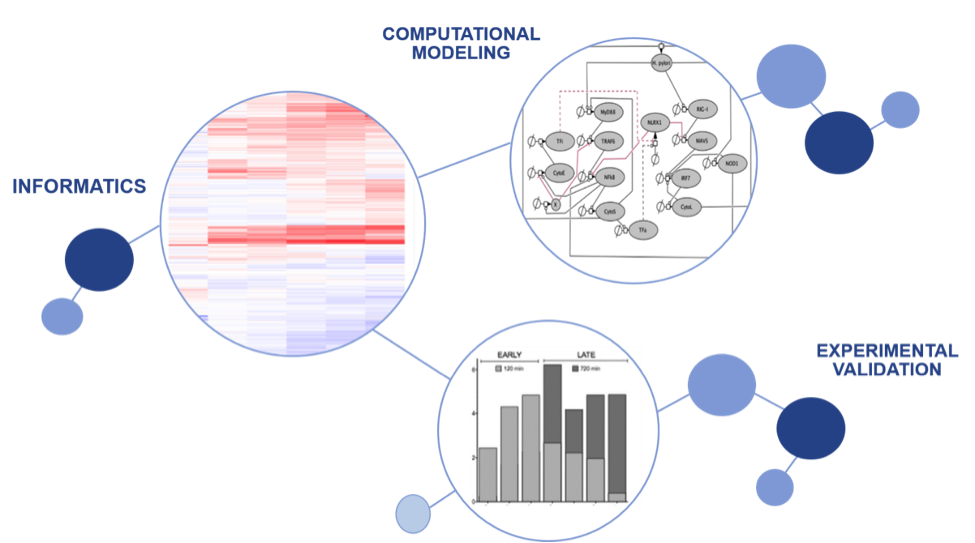MIEP Develops New Model of Innate Immune Responses to Helicobacter pylori

The MIEP team has published a computational model that characterizes how macrophages cope with intracellular H. pylori infection. The article, entitled “Modeling the regulatory mechanisms by which Nlrx1 modulates innate immune responses to Helicobacter pylori infection”, was published in PLoS One.
During chronic H. pylori infection hosts develop complex immune responses to cope with bacterial persistence that result in a variety of outcomes ranging from peaceful co-existence to detrimental disease. Innate immune cells play a decisive role in host fate by enabling high bacterial loads and minimizing the immunological impact of this burden in the gastric mucosa. Our results investigate a series of hypotheses driven by computational and mathematical modeling and suggest one mechanism required by macrophages to ensure survival of intracellular H. pylori without overzealous inflammatory signaling.
MIEP’s validated computational model demonstrates that the regulatory molecule, NLRX1, manages H. pylori burden in macrophages. Additionally, bacterial loads are dependent on a negative feedback loop created by early innate response genes. These findings are broadly applicable to other infections and could assist in the development of antibiotic free, host-targeted therapeutics that modulate host tolerance to prevent disease. This model is deposited in BioModels.net and freely available for download (MODEL1508180000).
About NIMML
The NIMML Institute is a 501 (c) (3) non-profit public charity foundation focused on a transdisciplinary, team-science approach to precision medicine at the interface of immunology, inflammation, and metabolism. The NIMML Institute team has led numerous large-scale transdisciplinary projects and is dedicated to solving important societal problems by combining the expertise of immunologists, computational biologists, toxicologists, modelers, translational researchers, and molecular biologists. The Institute is headquartered in Blacksburg, VA. For more information, please visit www.nimml.org or contact pio@nimml.org.
